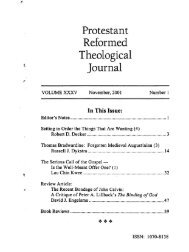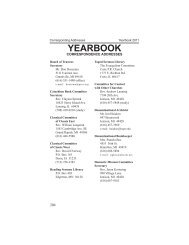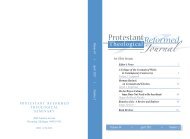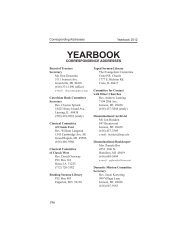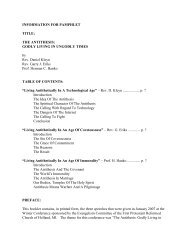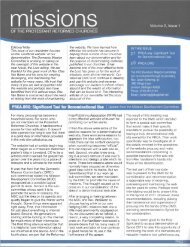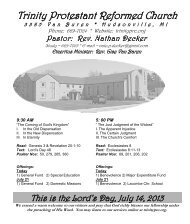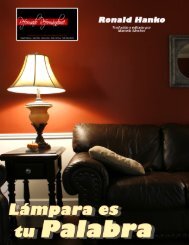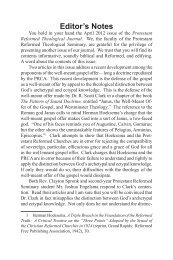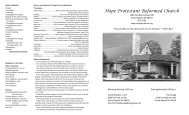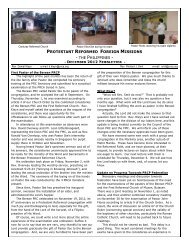November 2007 - Protestant Reformed Churches in America
November 2007 - Protestant Reformed Churches in America
November 2007 - Protestant Reformed Churches in America
You also want an ePaper? Increase the reach of your titles
YUMPU automatically turns print PDFs into web optimized ePapers that Google loves.
<strong>Protestant</strong> <strong>Reformed</strong> Theological Journal<br />
conversion. Where was the prolonged conviction of s<strong>in</strong> <strong>in</strong> the<br />
Samaritan woman (John 4), <strong>in</strong> Zacchaeus (Luke 19), <strong>in</strong> those converted<br />
on the day of Pentecost (Acts 2), <strong>in</strong> the apostle Paul (Acts<br />
9), or <strong>in</strong> the Philippian jailor (Acts 16) In each of those conversions<br />
the Spirit convicted of s<strong>in</strong>, and granted repentance from s<strong>in</strong>,<br />
but there is no <strong>in</strong>dication <strong>in</strong> Scripture that s<strong>in</strong>ners lie for weeks,<br />
months, even years under the terrors of conscience. Yet, this seems<br />
to be the s<strong>in</strong>e qua non <strong>in</strong> the Puritan doctr<strong>in</strong>e of conversion. Thus,<br />
Shedd writes, “the Holy Spirit does not ord<strong>in</strong>arily regenerate a<br />
man until he is a convicted man, until … he has become conscious<br />
of his need of regenerat<strong>in</strong>g grace.” 85 Surely, if he is a convicted<br />
man, he is already regenerated. If he desires regeneration,<br />
he has been born aga<strong>in</strong>. No unregenerate person desires regeneration.<br />
The Canons of Dordt (I, 16) do not lay so many obstacles<br />
before the s<strong>in</strong>ner. There are those <strong>in</strong> the church who attend the<br />
means of grace, and who do not “strongly feel” the evidence of<br />
grace <strong>in</strong> them that they desire to feel. They ought not despair.<br />
The Canons are not speak<strong>in</strong>g of the unregenerate, <strong>in</strong> whom there<br />
is no “liv<strong>in</strong>g faith,” “peace of conscience,” “earnest endeavor after<br />
filial obedience” (Canons, I, 16), but of those <strong>in</strong> whom these<br />
graces operate but are not “strongly felt.” The Canons assume<br />
such to be regenerate because they show the signs of be<strong>in</strong>g spiritually<br />
alive. With true pastoral warmth the Canons encourage<br />
such a trembl<strong>in</strong>g child of God:<br />
Much less cause to be terrified by the doctr<strong>in</strong>e of reprobation have<br />
they who, though they seriously desire to be turned to God, to please<br />
Him only, and to be delivered from the body of death, cannot yet<br />
reach that measure of hol<strong>in</strong>ess and faith to which they aspire; s<strong>in</strong>ce a<br />
merciful God has promised that He will not quench the smok<strong>in</strong>g flax,<br />
nor break the bruised reed (Canons, I, 16).<br />
If God has begun the work of salvation <strong>in</strong> a s<strong>in</strong>ner (evidenced<br />
by a hatred of s<strong>in</strong>, and a desire after hol<strong>in</strong>ess) He will br<strong>in</strong>g it to<br />
completion (Phil. 1:6). The bruised reed of Matthew 12:20 is<br />
85. Shedd, Theology, vol. 2, p. 514.<br />
80<br />
Vol. 41, No. 1



